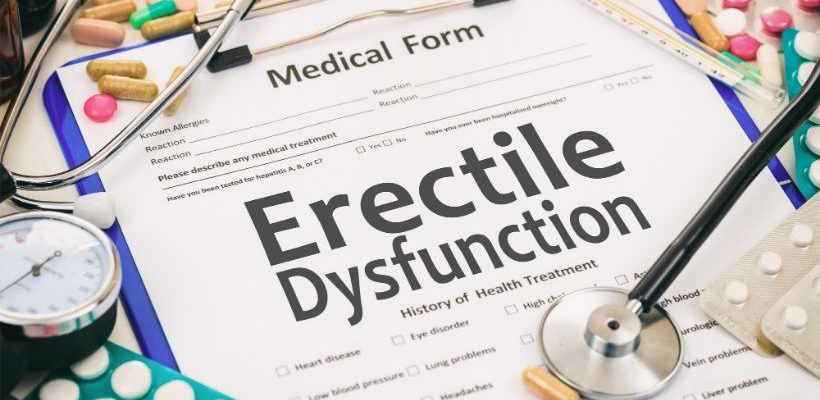5 Health Benefits of Music to Stay Youthful

A study done by Michael Miller, M.D., director of preventive cardiology at the University of Maryland Medical Center in Baltimore, shows that there are numerous benefits of music. It includes reducing stress and anxiety, improving cognitive function, and enhancing creativity and productivity. So, we can say that there are many more health benefits of listening to music than you think.
Harvard Health research shows that music intervention boosts mental health. Additionally, it brings about small yet noteworthy improvements in physical well-being. Eager to know how? Well, this blog is your roadmap to uncovering the answer. Here, you’ll read how music influences everything from blood pressure to brain function. Not only that but also its positive effects on your cardiovascular system.
So, if you’re an avid music listener looking for music’s impact on health, you’re in the right place. Keep reading to discover the potential benefits of music for your wellness!
Music can help in lowering blood pressure naturally
A recent study was conducted that highlights the health benefits of listening to music. According to the research, classical or Celtic music can assist in lowering blood pressure as much as cutting salt out of your diet or losing a few pounds can.
Harvard Health suggests that music and blood pressure have some sort of association. Simply put, soothing tunes can have a calming effect on your body. This way, it reduces stress and anxiety levels.
“Music can heal the wounds that medicine cannot touch.” – Debasish Mrihda, Poet and Physician
When you listen to music, your heart rate slows down. It then promotes relaxation and eases tension in your blood vessels.
Similarly, a case study reported that singing can lower your blood pressure prior to surgery. Singing engages your diaphragm and encourages deep breathing. This process can help regulate your blood pressure. Moreover, it also releases endorphins, the body’s natural feel-good hormones. Overall, it contributes to your well-being and relaxation.
In addition to listening to music, playing an instrument can also help in managing high blood pressure. Studies suggest that flute melodies, when combined with foot massage, help lower blood pressure in elders. It promotes relaxation and reduces stress. Additionally, focusing on the music can distract you from worries or tensions. This further aids in lowering blood pressure.
Key Takeaway: Listening to music, singing, or playing instruments can naturally lower blood pressure by promoting relaxation, reducing stress, and encouraging deep breathing.
Music has positive effects on the brain
A strong beat can sync your brainwaves, which can increase alertness and sharpen concentration. The change in brainwave activity allows the brain to shift speeds when necessary. Moreover, music with a slower tempo brings upon a calm state of mind and improves the ability to focus.
There are many positive effects of music on the brain. Many instances of music and mental health research show that music can stimulate the brain. It enhances cognitive functions like memory, attention, and problem-solving skills.
It is worth noting that our brains respond to music differently. Personal preferences, cultural background, and past experiences influence how our brains respond to music. Rhythm, melody, and harmony can evoke emotional responses and the brain perceives it as pleasurable.
You might find another thought crossing your mind: Is music good for the brain during reading? So, yes, it is! The benefits of music on the brain can be seen here as well. For instance, it can help improve focus and concentration.
Music is the only thing we can engage with that activates every part of our brain – Dr. Annie Heiderscheit
Key Takeaway: Music benefits the brain by enhancing cognition. It also reduces stress and boosts mood. Additionally, it aids concentration and fosters social skills.
Music improves heart health
Did you know that music can lower the risk of heart disease by 5-15%?
Listening to music and heart health correlate in various ways. It helps reduce stress and improve circulation. This, in turn, contributes to a healthier cardiovascular system.
When you listen to music that you enjoy, it stimulates the release of endorphins. These are feel-good hormones. These endorphins help relax blood vessels and reduce blood pressure, lowering heart rate. European Heart General studies also confirm that music lowers heart rate. For this reason, music is beneficial for people with heart conditions.
There are several positive effects of music on heart rate. For instance, the rhythmic patterns in music can synchronize with your heartbeat. This induces a calming effect and promotes better circulation. Studies have also found that listening to music can improve exercise performance. Exercise, then, can benefit heart health.
Key Takeaway: Music improves heart health by reducing stress and lowering blood pressure. It also helps synchronize heart rhythms, leading to better circulation and exercise performance.
Music and mental health
Music can slow down our breathing and heart rate as well. This causes your body to relax, which prevents you from chronic stress. One of the many benefits of music is that it can result in a positive state of mind. This helps in overcoming depression. This way, music holds a transformative power in maintaining mental health.
People who suffer from depression feel like they can control pain with music. . It is safe to say that music can distract you from pain which encourages relaxation.
Another health benefit of music is that listening to soothing music daily can help you relax. .
Key Takeaway: Music helps fight mental health issues by inducing relaxation. It promotes a positive state of mind and acts as a natural pain reliever through the release of endorphins.
Music can lessen pain
Your favorite music can help relieve pain effectively. It offers a natural remedy for discomfort, especially at night. Studies suggest that listening to soothing music can reduce pain intensity and perception. This makes it easier for you to fall asleep despite discomfort.
Moreover, music therapy for pain management has shown promising results. It aids in the reduction of pain medication dependence and promotes faster healing. Certain types of music, often labeled as healing music, can also induce relaxation.
The best music for pain management typically includes slow tempos and calming rhythms. Such music can help soothe both the body and mind. This type of music provides you with temporary relief. It further makes individuals smarter by enhancing mood and reducing stress. Thus, it facilitates a conducive environment for healing.
In essence, music and pain relief are intricately connected. Music is a powerful tool for managing and alleviating various forms of discomfort.
Key Takeaway- Music serves as a natural remedy for pain relief. It promotes relaxation and aids sleep. Certain types of calming music can reduce pain perception and dependence on pain medication. Overall, it facilitates healing and enhances overall well-being.
Final Words
I hope that it is now easy for you to see that music is not just here to keep us entertained while driving to work; it is so much more than that. With so many benefits of music for our health and mind, it’s no wonder that there’s music everywhere we go.
References
2022. Can music improve our health and quality of life. Harvard Health. https://www.health.harvard.edu/blog/can-music-improve-our-health-and-quality-of-life-202207252786
2019. Using music to tune the heart. Harvard Health. https://www.health.harvard.edu/newsletter_article/using-music-to-tune-the-heart#:~:text=In%20a%20study%20from%20Hong,listen%20to%20music%20had%20no
2011. Case Study Reports Singing Lowers Patient’s Blood Pressure Prior To Surgery. Medical News Today. https://www.medicalnewstoday.com/articles/220738#1
2019. Relaxing Melody from Flute Combined with a Foot Massage Can Reduce Systolic and Diastolic Blood Pressure in Elders. Research Gate. https://www.researchgate.net/publication/335037275_Relaxing_Melody_from_Flute_Combined_with_a_Foot_Massage_Can_Reduce_Systolic_and_Diastolic_Blood_Pressure_in_Elders
2006. Music and the Brain. Scientific American. https://www.scientificamerican.com/article/music-and-the-brain-2006-09/
2023. How music can benefit your child’s mental health. CHOC Home. https://health.choc.org/how-music-can-benefit-your-childs-mental-health/
2021. Effects of music on the cardiovascular system. National Library of Medicine. https://www.ncbi.nlm.nih.gov/pmc/articles/PMC8727633/
2015. Music and the heart. Oxford Academic. https://academic.oup.com/eurheartj/article/36/44/3043/2293535
2023. The Transformative Power of Music in Mental Well-Being. American Psychiatric Association. https://www.psychiatry.org/news-room/apa-blogs/power-of-music-in-mental-well-being
2023. Study: Listening to your favorite song could help relieve pain. Northside Hospital. https://www.ajc.com/life/health/study-listening-to-your-favorite-song-could-help-relieve-pain/SJPIO6HWNBHSFBVS6ASXGYP4QU/
Also Read
DISCOVER THE MIRACULOUS HEALTH BENEFITS OF POMEGRANATE
DISCOVERING 5 INCREDIBLE HEALTH BENEFITS OF FATS
HOW IS EXERGAMING FOR SENIORS A GAME CHANGER FOR HEALTH
10 Dangerous Effects of Stress on Your Health and Happiness

Do you know that your body faces toxins every day and one of these toxins is stress? Yes, that’s true! Stress can greatly affect your health and it can be very detrimental. Stress causes high blood pressure; it can cause heart conditions and can cause you to feel miserable. In fact, the effects of stress can even make you physically ill if you allow it to.
Everyone has had a situation that literally made them feel physically ill. This is usually brought on by stress and finding a way to reduce it can be very beneficial to your health. So, do you want to know how stress can affect you and your health? Well, here are the top can ways stress can affect you:
1. Stress Can Cause Fat Storage
Stress and weight gain are often connected. When you’re stressed your body stops producing some of the important genes that can stop fat storage, and maybe this is one of the biggest physical effects of stress. Due to this, you begin to store fat to deal with the stress. But this only leads to a vicious circle and your body stores more and more fat causing you to become overweight.
2. It Can Destroy Your Sleep Cycle
You should know that constant stress can lead to difficulty in sleeping as you might end up taking the stress and thinking of things instead of sleeping. This, in the long run, can completely destroy your sleep cycle and lead to mood swings and irritation.
3. Stress Can Cause Brain Damage.
If we talk about the psychological effects of stress, we can say that high-stress levels can lead to serious burnout. Also, long turn stress can become chronic and affect your memory and your ability to fight off infections and other conditions.
4. It Can Impact Your Immune System
Another one of the major effects of stress is that it can lead to the immune system shut down, creating inflammation in your body. Moreover, stress can affect your joints and other areas of the body as well. This is why many people suffer from cold sores when they become stressed.
5. Low Energy Level
Low energy level is yet another one of the effects of stress. Remember that the more stressed you are, the less energy you have to use. This is because the stress levels in your body are using up your energy resources. And once you start reducing your stress, your energy begins to get restored.
6. It Leads to Toxin Storage in Body
When you’re stressed your body isn’t able to metabolize medications and toxins that you’re exposed to on a daily basis. Furthermore, you begin to crave foods that aren’t healthy for you and aren’t able to fight your cravings.
7. It Can Cause Heart Problems
Now, if we talk about the long-term effects of stress, it leads to major health problems. If you’ve ever experienced a rapid heart rate or high blood pressure, stress may well be a contributing factor to your condition. You should know that stress and cardiovascular health are very much related, so reducing stress can greatly benefit your health.
8. It Affects Your Sex Drive
Another one of the big negative effects of stress of sex is that it affects the sex drive and leads to a decrease in libido. Chronic stress can change the hormones in your body and affect your sex drive. Reducing stress can improve this condition.
9. It Affects the Tolerance for Pain
Stress can greatly affect your ability to deal with pain. If you lower your stress, you may have a high tolerance to pain and be better able to deal with any pain you experience.
10. It Can Upset your digestion
Finally, Stress can also cause a myriad of digestive issues including irritable bowel and the overgrowth of bacteria that can negatively affect your digestion.
Overall, as you can see, there are myriads of negative effects of stress on your body. And this is why it is always being suggested to stay calm and away from stress. As per Doctors, they have noticed that many patients find relief from their health conditions after reducing stress. So why not indulge in some good practices to stay away from stress.
Hope this blog will help you!
Also Read
UNVEILING THE SECRET FOODS THAT REDUCE ANXIETY
7 GAME-CHANGING TIPS FOR MANAGING TYPE 2 DIABETES
DISCOVERING 5 INCREDIBLE HEALTH BENEFITS OF FATS
Discovering The Benefits of Healthy Relationships on Health

Did you know that being married could have significant impacts on your health? Yes, you heard it right! Studies have found that falling in love and staying in love can have whole-body impacts that will make you feel better. Want to know about some of the benefits of healthy relationships? If yes, keep reading.
What Are the Benefits of Healthy Relationships?
Here we are going to tell you about the pros of a relationship on your health:
Lowers Your Blood Pressure
The social support that you get from being married or being in a stable relationship can decrease stress and can naturally lower your blood pressure. Studies have found that one of the many pros of relationships is that happily married people have a lower blood pressure than those who are not in a committed relationship.
Longer Life Span
Another one of the benefits of healthy relationships is that it contributes to a long life. Studies have also found that a steady, committed relationship has a longer-than-average life span. This has been found to be more for men than women, but it is something to be considered, as everyone wants to live longer.
Lowers Risk of Disease
You should know that one of the many benefits of a healthy relationship is that it lowers the risk of all kinds of diseases, then be it diabetes, heart disease, or lung disease. Yes, that’s true. Studies have found that people who are married or are in a steady relationship have a much lower risk of disease.
Decreased Risk of Depression
Marriage and mental health are related as marriage can have a positive impact on mental health. Yes, there are many health benefits of marriage for mental health. Depression is decreased in those people who are in a committed relationship. This is most likely due to the steady support system that is found in a loving relationship. So, we can say that one of the biggest benefits of healthy relationships is that mental health all around is more positive in people who have a steady partner.
Good for Your Sex Life
One of the best healthy relationship benefits is a better sex life. Studies have found that people in a healthy and committed relationship have more sex than people who are single. Doesn’t that make you feel good?
Conclusion
All in all, we hope you understand that there are all sorts of benefits of healthy relationships. Being in a committed relationship impacts you both physically and mentally. When you are in this type of loving relationship, you will be happier and feel better as well.
Also Read
Discovering 5 Incredible Health Benefits Of Fats
10 Dangerous Effects Of Stress On Your Health And Happiness
Discovering The Benefits Of Healthy Relationships On Health
Say No To These 7 Most Addictive Foods For A Healthier You
Uncovering Top 6 Expert Tips For A Healthy Heart
Effective Ways to Prevent Acne for Clear Skin in Adults

In adults, the best ways to prevent acne may include maintaining a consistent skincare routine, avoiding harsh or drying products, and managing stress levels to keep skin healthy and clear. Want to know more about such tips in detail? If yes, keep reading as we are going to give you some expert tips to reduce acne.
Adult Acne Is a Silent Attacker
Waiting to break out right before some of the most important parts of your life: the prom, the first interview, the wedding? I know exactly what it’s like to have perfect skin for your whole adolescent life, and then be slapped in the face with breakouts randomly at age 18. It’s roughly like a truck of misfortune sideswiping you as you try to cross the street into adulthood.
I have also met many people who have struggled with acne their entire life, constantly feeling embarrassed and wondering how they can get rid of this inconvenience. Acne is caused by many things, one of the main ones being dirty substances meeting your face. After all this, it is quite common if you want to know about ways to reduce acne. You need to keep in mind that there are several strategies you can try. There are many proven medical acne medications that can work. But there are also (sometimes) easier solutions, some of which can be the best ways to prevent acne.
Best Acne prevention tips for treating adult acne –
1. Cleanliness is Next to Attractiveness
One of the best things to do to prevent acne is to always keep your face clean, even if there is no sign of a breakout. The incredibly high number of germs and bacteria that the human face encounters on a daily basis is what causes acne, and keeping a clean face as often as possible is the best way to stop acne. The most common way that these bacteria contact our faces is through the fingers. This means that reducing the amount you touch your face every day can also drastically reduce the risk you have of a breakout.
2. Consider using Sunscreen
The sun plays a huge part in how our skin acts. The sun can cause wrinkles, sunburn, freckles, and most of all, acne, and that is why the best acne prevention tip is to use sunscreen! The sunblock you can find at your local convenience or grocery store isn’t just there to ensure that you don’t leave the beach looking like a firetruck with a brand-new paint job. It is also there to prevent the sun’s ultraviolet rays from doing significant damage to your skin in all regards.
Although it’s always nice to have that nice, tan beach body, the pimples, and zits you could obtain from a lack of sunblock will not look good. This is why making sure to always use good products to prevent acne such as the SPF15 sunblock whenever you go outdoors on a sunny day is a very important part of acne prevention.
3. Avoiding Stress Is One of the Best Ways to Prevent Acne
I have seen many people wondering whether stress causes can or not. Well, the answer is a resounding yes! Many experts will attest that our emotional stability (or instability) is directly related to all aspects of our bodily health, and the condition of our skin is no exception. If the level of stress you experience daily is causing breakouts of acne, you definitely want to take some time out of your day to find some ways to relax, whether it be a long shower, meditation, or just listening to some music. So, it won’t be wrong to say that staying happy and not stressing too much is one of the best ways to prevent acne.
The bottom line is this:
It is a well-known fact that various day-to-day things have a huge effect on our skin’s health. But before you go rushing to the stores to buy the newest “miracle cure”, try the above-mentioned tips as they are surely the best ways to prevent acne and will keep your skin looking smooth and beautiful.
Also Read
10 DANGEROUS EFFECTS OF STRESS ON YOUR HEALTH AND HAPPINESS
MASTERING EVERYTHING ABOUT DEGENERATIVE JOINT DISEASE
DISCOVERING 5 INCREDIBLE HEALTH BENEFITS OF FATS
Say Goodbye to Dryness with Effective Winter Dry Skin Remedies

Is your skin ready to handle the cold when winter comes, or does it get dry and flakey? Well, dry skin is a common problem in winter as low temperatures, low humidity, and strong winds can diminish the natural lipid layer, natural oils, and moisture of the skin.
So, do you want to know about some great winter dry skin remedies? If yes, keep reading as we are going to give you some effective tips.
Winter Skincare: A Complex Task
Winter skincare is surely a complex task to perform, isn’t it? We are saying this because it involves taking extra steps to protect and moisturize the skin during the colder months when the air is dry, and the weather can be harsh. Remember that you should never consistently apply moisture to the skin as that will cause it to dry out faster. Locking moisture in is the best action.
During the winter, we use our heaters all the time. You should know that the dry air from furnaces and other heating sources causes the skin to lose moisture quickly. But, when you use the winter skin care tips that we are going to mention below, your skin will be a lot better.
Effective Winter Dry Skin Remedies for You
-
Lukewarm water Is Better Than Hot Water
When using water to wash your hands or take a shower, using lukewarm water instead of hot water will reduce dryness. Remember that this is the biggest of the tips for dry skin in winter. But, if you cannot resist hot showers, then try to cut down the amount of time you spend in the shower to help your skin stay healthy.
Even though it is cold, avoiding drying chemicals and heat from a hot tub will help your skin. After showering or washing your hands, apply moisturizer while the skin is still damp to lock in moisture. We believe that the best lotions would be the ones containing 100% Shea butter or Cetaphil Lotion. Also, when drying the skin, it is best to pat the skin instead of rubbing it to avoid dryness brought on by friction.
-
Avoiding Soap Is a Good Idea
We all know that soaps are a big thing for the skin, right? Well, of course! But one of the best winter dry skin remedies is to avoid using soap. Wondering why? That’s because soaps dry out your skin in winter. If you still can’t live without using soaps, you better use soaps that contain glycerin or petroleum such as Aveeno body wash.
-
Hydrating dry skin
Another great dry skin in winter remedy is to prevent your skin from drying out by keeping it hydrated. Remember that it’s best to exfoliate once a week or every other week. Using a salt or a sugar scrub when the skin is dry will give it a smooth texture that you cannot resist. Moreover, applying face lotion will help your skin as well.
The place on your skin that needs the most attention is your lips. This is because lips do not hold in as much moisture as the rest of our body, making them dry out faster. Something everyone does is lick their lips but licking your lips causes them to dry out faster. Yes, that’s true. Using a simple lip balm will keep your lips moisturized for winter. Moreover, to get dead flakes off of your lips, you can use a toothbrush in a circular motion on your lips to remove dead flakes.
All in all, it won’t be wrong to say that skin and lips need to be taken care of during the winter. Before you go outside, put on some moisturizer to keep your skin from drying out. Take care of your skin with the winter dry skin remedies mentioned above, and you’ll see how it stops the itchiness and redness.
Also Read
EFFECTIVE WAYS TO PREVENT ACNE FOR CLEAR SKIN IN ADULTS
DISCOVERING 5 INCREDIBLE HEALTH BENEFITS OF FATS
10 FOODS THAT REDUCE ANXIETY AND THE ONES THAT WORSEN IT
UNCOVERING SECRET HOME REMEDIES TO DEAL WITH SEASONAL ALLERGIES
Uncovering the Truths Behind Common Health Myths

It’s not uncommon for people to believe certain health myths, right? Well, of course, yes! But are all those myths about health true? Well, questions have been risen related to the authenticity of many of these myths. Whether they are true or not, most myths will cause you to re-evaluate your own health choices. Remember that you should never fall for those myths. You should believe in the facts and make informed decisions about your well-being.
Busting the Myths of Health – Separating Fact from Fiction.
Health Myth One: Milk Does Wonders
Dr. T. Colin Campbell PhD., a respected nutrition and health researcher, has discovered the truth about the effects of protein in our milk. Yes, you heard it right! According to his research in ‘The China Study,’ Dr. Campbell found that the main protein found in milk, Casein, (found in 87% of cow’s milk) “…promoted all stages of the Cancer process.” Results indicated that abstaining from consuming milk and any form of animal protein halted the growth of cancerous tumors. So, if the research is to be believed, the health myths about milk being great for health are wrong.
Health Myth Two: Herbs Are the Way to Go!
Many people believe that herbs are the answer to all their health problems, right? Moreover, there are many myths in the health sector about the supposed benefits of herbal remedies. It’s true that some herbs are great but thinking that a product is harmless just because it contains herbs is wrong. You should not get fooled by the health myths about herbs being harmless. Kava, known to reduce anxiety, has been shown to be toxic to the liver.
Other herbs, such as Ginkgo Leaf Extracts, are known to cause headaches rather than improve mental clarity, or work to treat dementia and peripheral vascular disease. St John’s Wart, Echinacea, German Chamomile, and Ginkgo biloba have been reported to cause allergic reactions. This is why we believe that it is smart to consult your physician on natural products or supplements to see if they fit your health needs.
Health Myth Three: Constricting Calories Will Help in Weight Loss
Another one of the most famous myths of health is about less calorie intake leading to weight loss. Though it is important to moderate your calorie intake, it is much more essential to watch your sugar intake. Yes, that’s true!
We are saying this because minimizing your glucose intake will significantly aid in your weight loss battle. Remember that an excess of glucose is the major cause of fat storage. So, by moderating your glucose levels, you can make your weight loss journey easier. Make sure to also engage in weight training and moderate periods of cardio, instead of believing in health myths, as it is an effective way to burn fat.
Health Myth Four: Fresh Fruits and Vegetables Are More Nutritious Than Canned or Frozen
This is yet another one of the health misconceptions which says that fresh fruits are always more nutritious than canned fruits. Well, it depends on two different factors: how long the fruit or vegetables have been in the fridge, and how long they’ve been cut and are kept out on the counter.
Remember that leaving fruits and vegetables in the fridge for long periods of time causes them to lose vitamins. In this case, fresh fruits might not have the same nutritional value as canned or frozen. Also, leaving cut-up fruits or vegetables out on the kitchen counter for more than 20 minutes results in vitamin loss due to air exposure. As a result, canned or frozen fruits can be just as rich in vitamins as fresh fruits.
Health Myth Five: The Road to Perfect Skin Is Through Washing and Moisturizing!
Taking care of your skin is important, however, there is a direct connection between the food you digest and the condition of your skin. Remember that an unhealthy lifestyle will cause more of a strain on your liver and kidney. Because the skin is also an organ used to eliminate waste, these results will be apparent on your skin. So, the healthcare myths regarding washing and moisturizing skin being the only key to healthy skin is not true. You should keep in mind that the cleaning regimes are not always as important as the food which is consumed.
Final Words
We hope that now you know the truth behind all the popular health myths. So, don’t let all these myths fool you anymore. Remember that instead of following the common health myths blindly, it’s better to know the reality and facts behind them so that you can make the right choices.
Also Read
COMBATING SKIN INFECTIONS IN WRESTLING: HARNESSING THE POWER OF WIPES
DISCOVERING THE BENEFITS OF HEALTHY RELATIONSHIPS ON HEALTH
UNVEILING THE SURPRISING COCONUT WATER BENEFITS ON HEALTH
Uncovering Top 6 Expert Tips for A Healthy Heart

It’s a tragic fact but heart disease is the leading cause of death in the world. Yes, that’s true! In fact, in 2016 alone, nearly 10 million people worldwide died from coronary artery disease. This disease is all about the narrowing of the arteries due to a build-up of plaque. Simply put, when your arteries become clogged, blood, and therefore oxygen, cannot reach your heart. This is why it is important to keep your heart healthy.
Creating a plan for having a healthy heart involves making changes to your diet, exercise routine, and overall habits to promote heart health and prevent heart disease. Isn’t this good news? Well, of course, it is. Your heart health is almost completely within your control.
We agree that there are certain risk factors that can’t be changed, such as age and family history. But simply by adjusting your habits to create a heart-healthy lifestyle, you can drastically lower your risk of heart disease and other devastating chronic conditions.
We are saying all this because positive lifestyle changes have a domino effect! Yes, you heard it right. Everything you do to care for your heart will improve your overall health as well. So, here are the 6 best tips for a healthy lifestyle.
1. Remove Unnecessary Risks
The first, and potentially most difficult, step you need to take is removing unnecessary health risks from your life. This means that you need to quit tobacco use and possibly scale back your alcohol consumption.
Now, there’s nothing wrong with enjoying a drink or two, but any more than that on a regular basis and you increase your risk of high blood pressure, stroke, and cancer.
As for tobacco use, there is no healthy amount. Smoking not only causes 30% of all cancer deaths in the United States but also damages every organ in your body, including your heart and blood vessels. So, without any doubt, the most important of the tips for a healthy heart is quitting tobacco and alcohol.
2. Get More Physical Activity
One of the best ways to avoid heart failure and other diseases is to get in place an exercise plan for a healthy heart that involves more physical activity in your daily routine. Aim for a minimum of 150 minutes of moderate-intensity physical activity per week. This means you have to do it only 30 minutes a day, five days a week!
Stick with activities you genuinely look forward to doing. If you hate the gym, don’t try to force yourself to go. Remember that by making physical activity a pleasure rather than a chore, you’re much more likely to keep up with your fitness journey. We believe that something as simple as going for a bike ride in the evening or a walk around the neighborhood after work can be enough to get you on the right track with your heart health.
You need to keep in mind that 150 minutes is the minimum we suggest. So, if you feel comfortable, you should work up to 30 minutes of activity or more every day of the week.
3. Eat Healthier
If you eat a typical Western diet, chances are you’re eating an abundance of foods that should be limited or avoided altogether, especially when you’re seeking a heart-healthy lifestyle. Our diets are often loaded with sugars, sodium, and other additives that can lead to heart disease.
So, another one of our tips for a healthy heart is to treat yourself to a heart-healthy diet plan. You can have a cookie or a bowl of ice cream every now and then but do your best to ensure that the bulk of your diet is made up of whole, nutrient-rich foods. This means that you should intake plenty of fruits and vegetables, as well as lean proteins and healthy fats and carbohydrates.
When in doubt about heart-healthy foods, choose foods that are rich in nutrients. And when in the aisles, choose the options with the least ingredients. For example, if you’re buying frozen strawberries, there should only be one ingredient: strawberries.
4. Prioritize Mental Health
Anxiety and depression are all too common, but even if you aren’t suffering from mental illness, you need to make efforts to prioritize your mental health. Yes, that is true.
Many of us view stress as an unavoidable part of life, right? While that’s true to an extent, you should remember that stress can do a number on both our mental and physical health. Stress has a negative effect on every facet of health, from your digestion to your immune system to your heart health, which is why it’s so important to manage it.
You should take time out each day for activities such as yoga, meditation, writing in a gratitude journal, or talking to a friend. In simple words, one of the best tips for a healthy heart is that you should do whatever makes you feel calm and centered.
5. Improve Your Sleeping Habits
If you wake up every morning feeling as if you haven’t slept at all, you’re not alone. About one-third of adults don’t get enough quality sleep but if you’re in this percentage, it’s time to make a change.
So many of us put sleeping at the bottom of our priority list, classifying it as a waste of time and spending as much of our day awake as possible. This might feel like a productive move to you, but it is actually a huge mistake. In reality, sleeping is one of the most productive things we can do for our health. Always remember that getting 7 to 9 hours of high-quality sleep is absolutely essential to lowering the risk of high blood pressure and heart attack.
So, another one of the important healthy heart tips is to improve the quality of your sleep. And to do this, you should try limiting your caffeine consumption to the morning hours and putting your electronics away an hour or two before bed. You should create a relaxing bedtime routine that includes activities such as taking a bath, reading, or practicing meditation.
6. Make Regular Visits to Your Doctor
No one likes going to the doctor, but the key to preventing and treating heart failure symptoms is to visit them early. So, you should visit your doctor to discuss your weight, blood pressure, and cholesterol levels at least once a year. Your doctor will be able to give you helpful advice for achieving or maintaining a healthy level of all three and tell you if you’re beginning to reach the danger zone with any of them.
Without regular testing, you won’t be able to know if you have a heart-damaging condition such as high blood pressure or high cholesterol until it’s too late. Going to the doctor might be uncomfortable but remember that your health is too precious to risk.
Start Your Journey Toward a Heart-Healthy Lifestyle Today
We believe that it’s never too late to start making your health a priority. By using the above-mentioned tips for a healthy heart, you can lead a life away from heart problems and you’ll be amazed by how much better you feel in your day-to-day life.
Best of all, you’ll improve your overall wellness and add healthy years to your life. So, what are you waiting for? Start taking steps toward a heart-healthy lifestyle plan today.
If you’ve been prescribed medication to help you in your journey, take a look at our products. We’re committed to providing you with the medication you need at the lowest price possible.
Also Read
DISCOVERING THE BENEFITS OF HEALTHY RELATIONSHIPS ON HEALTH
EXPLORING 5 PROVEN METHODS FOR NATURAL ED TREATMENT
DISCOVERING IMPACTFUL WAYS FOR TYPE 2 DIABETES MANAGEMENT
Exploring 5 Proven Methods for Natural ED Treatment

Erectile dysfunction (ED), or impotence, is an issue that can affect men of any age. Yes, you heard it right! It can happen due to a number of factors such as a man’s overall health condition, emotional state, or even problems within a relationship.
We believe that there are physical and emotional barriers that can cause it. Impotence can negatively alter self-esteem for men because they may feel they are a lesser version of themselves when they cannot perform. This is why we are here to share with you the top 5 natural ED treatment methods, so keep reading.
What Do You Understand by Erectile Dysfunction?
Erectile dysfunction, also known as impotence, is the inability to get or maintain an erection sufficient for sexual intercourse. It is a common condition that can be caused by a variety of physical and psychological factors.
But you need to remember that impotence is not a permanent issue, and there are a variety of natural ED cure options available. Yes, that’s true. There are numerous natural ED treatment ways to treat it at home.
What Are the Tips to Treat Erectile Dysfunction at Home?
Now, we are going to give you some expert tips for natural treatments for ED.
1. Exercise Is Vital
We hope that you already know that moving in general is great for our bodies. And it is an effective remedy for those with erectile dysfunction as well because it improves the blood flow in your body. Remember that having good blood circulation is important for getting strong erections.
Men do not have to do much to achieve this as walking alone can make an incredible difference. When men take care of their vascular health, it also helps increase the production of testosterone. You should know that this male hormone plays a huge role in erectile strength and sex drive.
Any form of exercise, including strength training, can help prevent issues with high blood sugar, cholesterol, blood pressure, and triglycerides. These vascular-related conditions can damage the arteries in the heart and brain. Eventually, it can lead to heart attack, stroke, and erectile dysfunction. When men keep their vascular system in check, they are promoting penile health which makes exercising one of the best natural ways to cure ED.
2. Implement a Healthy Diet
The types of foods you eat can also make a difference in erectile dysfunction. Yes, that’s true. So, it won’t be wrong to say that one of the best natural ED treatment methods is eating a diet rich in whole grains, fish, fruits, and veggies.
You should also avoid eating red meat (no more than 2-3 servings per week) and consider eliminating alcohol from your diet. We are saying this because alcohol can cause temporary and long-term complications with ED because it is a depressant. The central nervous system releases nitric oxide, a chemical that helps men produce and create an erection. When you consume too much alcohol, you depress the nervous system which depresses nitric oxide.
Incorporating these changes also contribute to a healthier vascular system which helps men maintain a healthy weight and reduce issues with blood circulation. Losing weight can also prove to be an erectile dysfunction natural treatment as excess fat in the body can alter male hormone levels.
3. Stopping Smoking
The vascular system is very important in maintaining performance for men. Another way men can impede blood supply is by smoking. When you smoke, you affect your arteries just as much as your lungs.
Over time, arteries start to get stiff, which can travel and cut off necessary blood flow. This can cause men to notice issues with starting or keeping an erection. So, we can say that for men who smoke, leaving that habit can alone be a great natural ED treatment.
We agree that quitting can be hard to do on your own. If you want to quit and need help, you should speak with your doctor about finding appropriate methods to get you started.
4. Add Supplements
Incorporating supplements can also be a great natural ED treatment at home. To be safe, it is best to talk with your doctor to see which supplements you can take safely while avoiding detrimental side effects. Some of the common ones are:
Ginseng
Ginseng is one of the few supplements that has plenty of solid research behind its positive effects on erectile dysfunction. There are several types, but red ginseng may be the best to use for natural ED treatment.
Pomegranate Juice
Pomegranate juice is rich in antioxidants which help the body replenish nitric oxide levels. It also has a direct impact on preventing or treating adverse atherosclerotic changes that shunt normal blood flow and cause impotence.
L-Arginine
L-Arginine is a type of amino acid found in the body that helps you make nitric oxide. You should know that nitric oxide is important because it promotes the relaxation of blood vessels. This helps improve blood flow to the body as well as the penis. Men who take it may notice positive changes in sexual function after a few months.
DHEA
DHEA is a hormone the adrenal glands create, which can convert into testosterone and estrogen. Men who have erectile dysfunction often have low levels of DHEA and increasing it through supplementation can be beneficial. DHEA also helps men achieve and maintain erections so increasing it can act as a natural ed cure.
Ginkgo
Ginkgo can treat impotence by helping the body increase normal flow which helps improve performance and sexual desire in men. But always keep in mind that this is a supplement you should not take if you have a risk of bleeding or if you are on blood thinners.
Yohimbine
Although there is not a lot of research on Yohimbine, it has been shown to promote positive effects on sexual performance. But remember that men should use this supplement with caution because it has a few side effects like irregular heartbeat, increased blood pressure, and anxiety.
5. Get Quality Sleep
Restful sleep is more important than you may think as it can cause a myriad of issues. Not getting enough sleep or restful sleep, as you may have guessed, can also contribute to erectile dysfunction or make it worse. Yes, you heard it right! Remember that an average adult should sleep at least 7-9 hours a day to allow the body to reset itself.
Hormone secretion is controlled by a number of factors, and the body’s sleep pattern has some effect on helping the body discern when it should release hormones. You should know that poor sleep can reduce overall testosterone.
Testosterone deficiency can cause metabolic complications, cardiovascular disease, and erectile dysfunction. Moreover, men who do not get enough sleep can also have poor circulation.
Final Thoughts
The best way of treating ED naturally is to know what type of issue you are experiencing that is causing it. If you are experiencing erectile dysfunction, and it’s mainly linked to emotional and relationship issues, you should resolve those issues.
You may also experience erectile dysfunction due to blood circulation issues and medications. While there are medications you can take to treat impotence, there are also medications that can cause it. Yes, you heard it right! So, if you are on medication, check with your physician to see if you are experiencing a drug side effect.
You can refill a prescription given to you by your doctor online. Medication such as Sildenafil (Viagra) or tadalafil (Cialis) is best at helping address erectile dysfunction.
Also Read
UNCOVERING SECRET HOME REMEDIES TO DEAL WITH SEASONAL ALLERGIES
UNCOVERING TOP 6 EXPERT TIPS FOR A HEALTHY HEART
10 DANGEROUS EFFECTS OF STRESS ON YOUR HEALTH AND HAPPINESS
SLEEP APNEA: THE SURPRISING CULPRIT BEHIND YOUR RESTLESS NIGHTS

